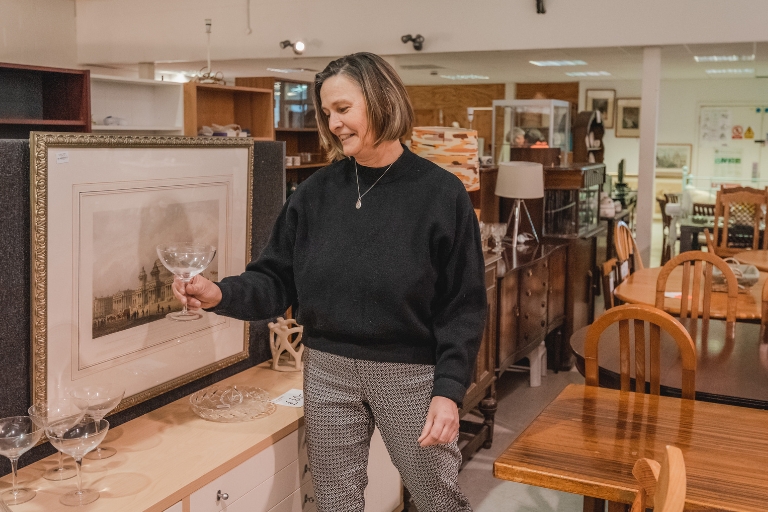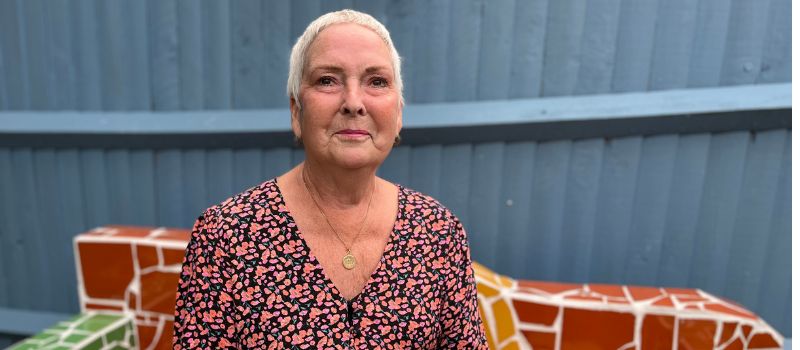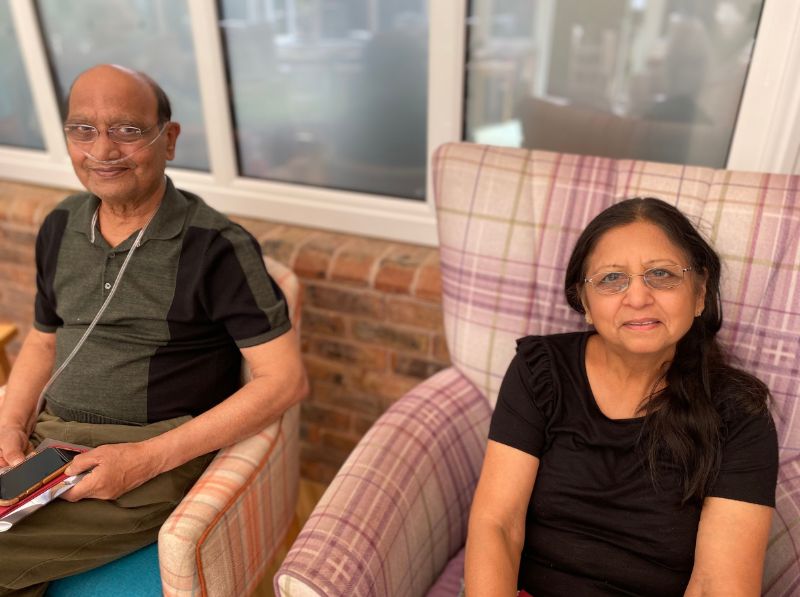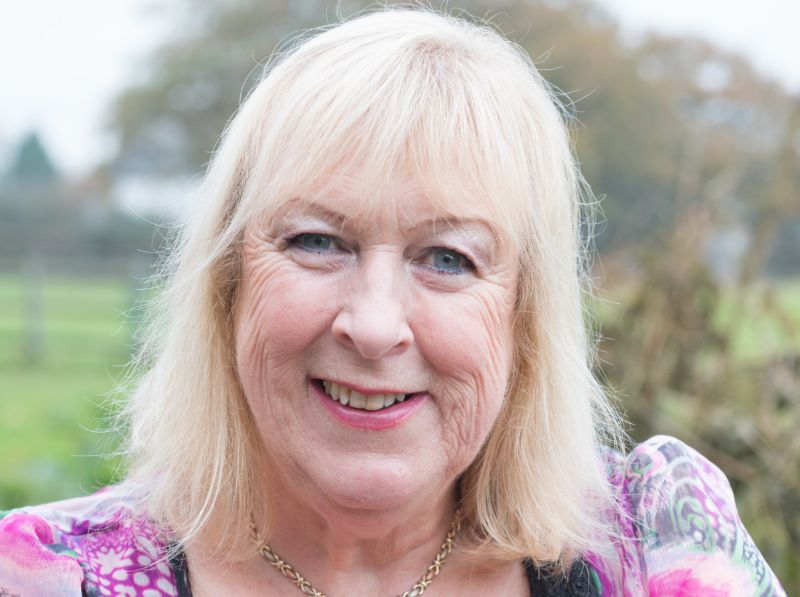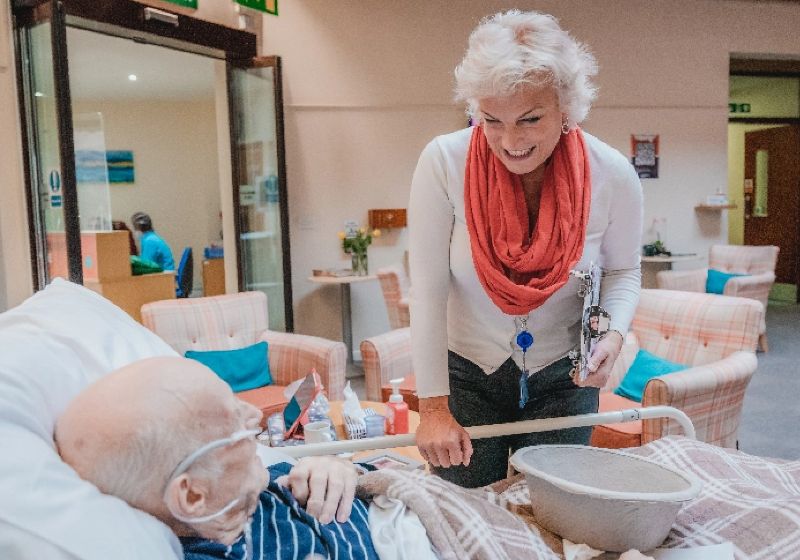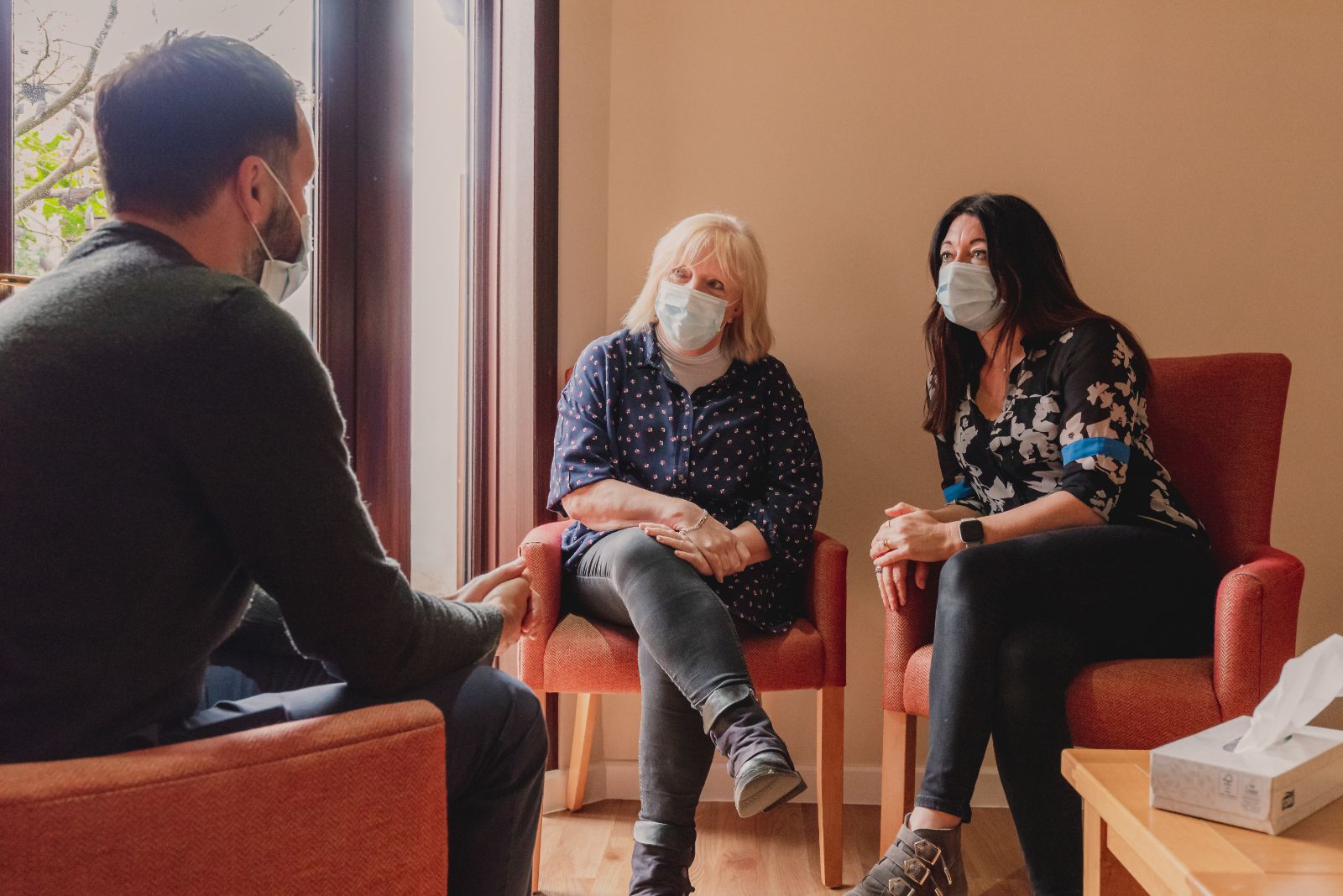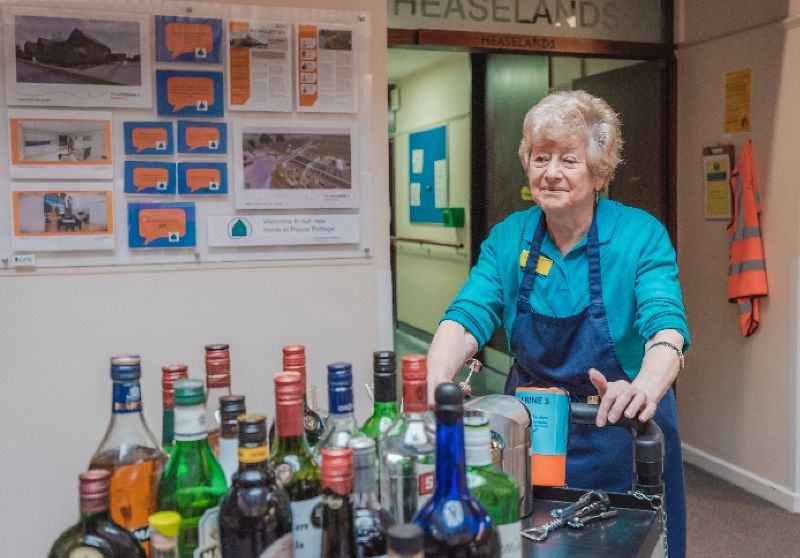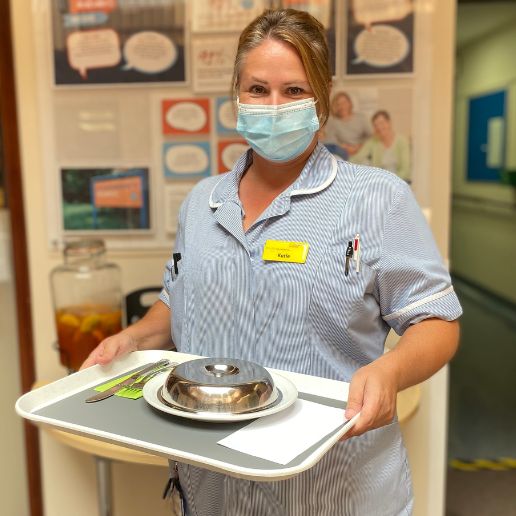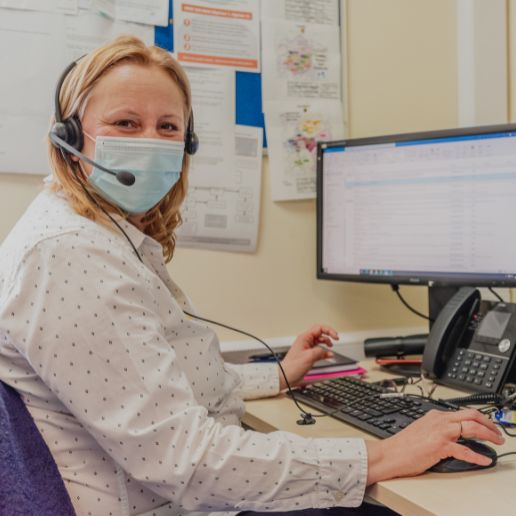Karen Fentum is a Nursing Assistant in our Practical Care Team. She’s worked at our hospice for nine years, providing practical hands on care to local people in the comfort of their own homes.
“We build up strong relationships with the patients and families we look after
Coronavirus means we’ve had to adapt quite quickly. Our usual place of work changed when we moved offices, but we’re still out visiting people every day, that’s never altered. We can’t currently travel two in a car to people’s homes like we used to, so for every person we visit, we drive separately now, so we’re all doing more mileage. Travelling separately has been challenging for lots of us as we often decompressed with each other, and there’s no rest period between visits and driving now.
We’ve also had to adapt to wearing Personal Protective Equipment (PPE)
We’re getting more used to wearing it now and to thinking on our feet. For example, we have to consider patient confidentiality on our visits and think about whether we can change into PPE outside someone’s house. Families are getting more used to us wearing the PPE now too. A lot of the families we visit are leaving bags outside for us to dispose our PPE in, and some of them offer us shoe covers too. We’ll do whatever we need to, to make people feel comfortable. We’re going into their home, so we understand if they feel concerned. The most difficult thing for us is wearing our masks as our patients can’t see our faces as much, but they can still see our eyes and know that we care.
We know that people are anxious because we’ve felt it too
When the virus first hit, my daughter made me strip off as soon as I got home. I’d go straight in the shower while she disinfected my keys, but she’s started feeling less worried now as it’s started to become more normal. As a team, we support each other and openly discuss any worries we might have.
I lost my Mum in a care home at the start of lockdown
In the few weeks before, there was a man we were looking after who was waiting for a result for possible COVID-19 after coming out of hospital. I said I couldn’t visit him, because if I did, I wouldn’t have been able to visit my Mum in her care home or see her before she died. The team were really understanding. Other people covered those visits so I was able to minimise my risk and continue to see my Mum. When Mum died, the team got together remotely with me, and all lit a candle and shared a glass of wine.
We build up strong relationships with patients and families we look after
As we’re washing people they open up and talk to us, and it’s not uncommon to have sensitive conversations about the end of their life. During one visit not too long ago, a lady wanted to tell us things about her funeral. As she spoke, my colleague wrote down her wishes, but it became apparent she was quite spiritually distressed. We rang back to the hospice, and another colleague liaised with Lisa, our Chaplain and Spiritual Care Lead, who visited the lady that afternoon. The lady was able to say everything that she needed to and she died peacefully a couple of days later. Knowing we helped her to achieve peace is lovely
There was another visit we did where we identified a gentleman’s family were in crisis and weren’t coping with looking after him at home. Although the gentleman was very unwell, he was anxious and vulnerable as he was still aware enough to know that his family weren’t coping. He asked if he could come into the hospice instead of staying at home. We were able to get him in here where he died peacefully.
People are always asked where they’d like to die and we always do our best to help them achieve their wish wherever possible.
As well as patients we liaise with their families
During coronavirus, a lot of family members have moved in with their relatives, because if they were going in and out their relatives’ home, we and other services wouldn’t be able to safely visit. In other homes there’s less family members there than usual as people aren’t visiting. Families regularly talk to us and we refer them to our colleagues for all sorts of help – financial, spiritual, and medical. We remind people that we’re always available by phone too. People can ring our triage service and we’re available 24/7 as nurses answer the phone overnight too.
Sometimes, we’ll go into someone’s home when they’ve just been referred to us and find out that they have no equipment at home. We have to think quickly and often arrange for a hospital bed and other support equipment from our physio team.
We also support GPs and District Nurses and arrange night sits for people who need them. One lady was caring for her terminally ill father and her mother who had Alzheimer’s. She was so exhausted she wasn’t coping. We arranged a night sit for her so she could get a good night’s rest. The change in her when we next visited was unbelievable. Getting a good night’s rest can make a huge difference when you’re caring for someone who is so unwell
Every day is different
And communication is one of the parts of my job I enjoy the most. You start to pick up and recognise what people need. When we’re giving hands on care, some people are so fatigued a full wash wears them out, so we just sponge and freshen them up. One gentleman I visited had been feeling so unwell he’d lost all interest in his care. When we went in and provided him with some freshening up it really lifted his mood.
Other people we visit feel up to a full bed bath. We’re able to give men a shave and to wash people’s hair with a special shampoo shower cap. People tell us it feels amazing afterwards.
We’ve painted people’s nails and massaged on their favourite creams. Whenever we’re giving care, we’re also checking people’s skin and moving their limbs and positions to make sure they’re not getting bedsores and we always report back to the nurses.
At the moment, when we’re providing any personal care, we’re having to wear gloves. I find this quite hard, because for me, so much about the care we give is to do with our touch. Our gloves create a barrier and a bit of the intimacy has gone, but for now, it’s necessary.
We also teach families how to do certain care tasks as a lot of people are frightened they’ll hurt their loved one. Mouthcare is a big part of this, as patients’ mouths often get very dry. We wash people’s teeth or use a sponge or a bud to wet someone’s mouth. That makes a huge difference to their comfort and is something relatives can do easily to support their loved one
We’ll do whatever we can to make life easier for people
If there’s a sink full of washing up or a shopping delivery has arrived at someone’s home, we’ll wash up or put the shopping away. We make light meals for people too, so we’ll make a sandwich, pop in a microwave meal, or make cups of tea and coffee.
Sometimes people don’t want us to do anything other than sit and talk to them about their worries. Other times, conversations take a lot out of people.
As they become less well, people often want to have conversations with us about death and dying and we can’t be afraid to have those conversations with them. We’re often with people and their families when they die, so it’s not uncommon for people to ask us things like ‘Am I dying?’ ‘Will I die today?’. We guide them and we’re always honest.”
Our Stories
Hear from our patients, their relatives, our staff and volunteers about the care of St Catherine’s Hospice.
Or for even more stories, updates and news from St Catherine’s Hospice, why not have a read of our biannual Matters magazine?
To read the latest edition of Matters, click here.
Don’t forget to follow us on social media for our latest stories
You can find us here:
Facebook: St Catherine’s Hospice, Crawley and St Catherine’s Hospice Fundraisers
Twitter: @StCHospice
Instagram: @stcatherinescrawley
LinkedIn: St Catherine’s Hospice, Crawley


